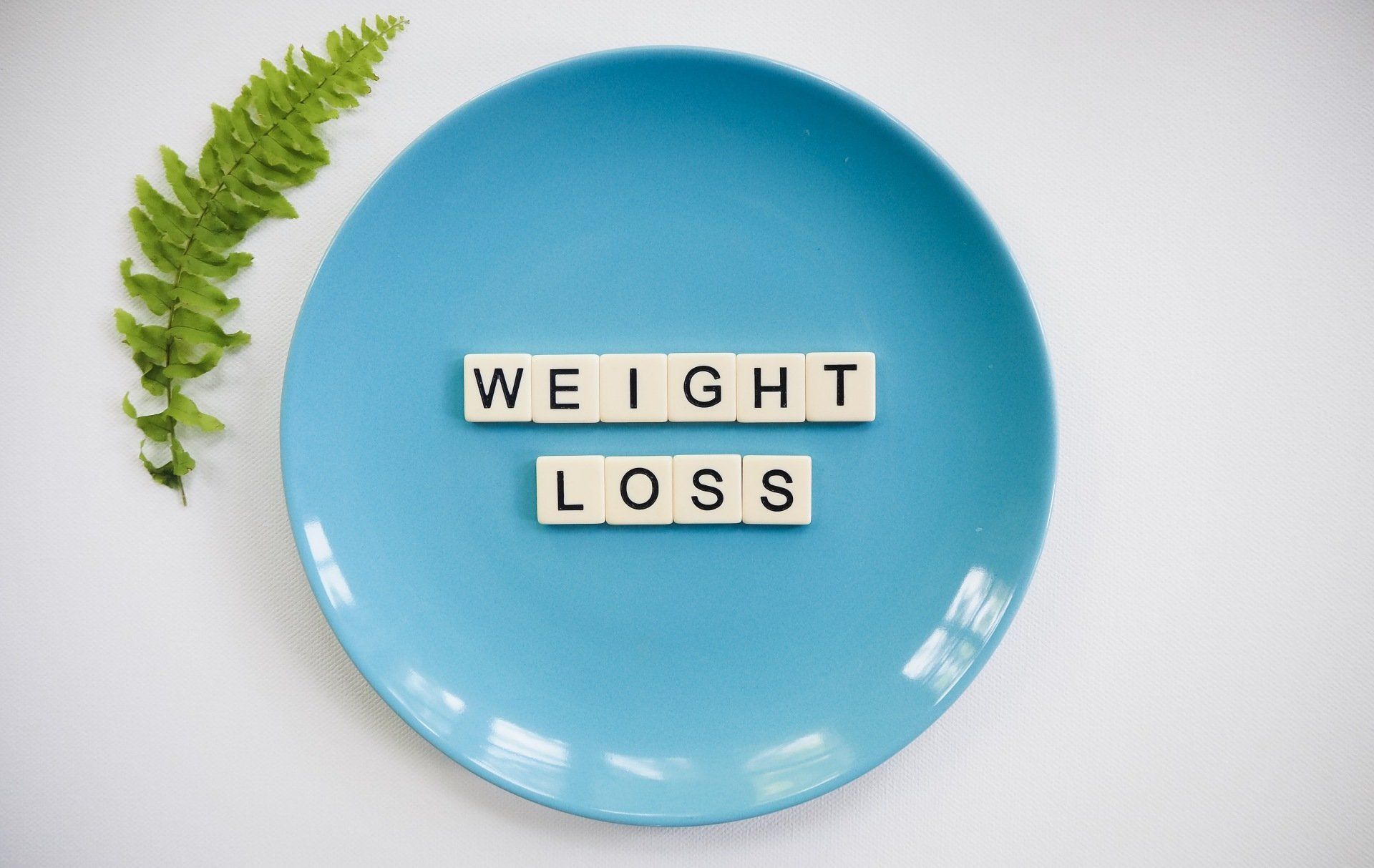The BEST diet for 2020?
If you haven’t heard by now, CNN recently released its list of “Best and worst diets for 2020. Ranked by experts”, plant-based diets are being ranked the highest. This was based on the opinions of 25 judges from US News and World Report’s 2020 rankings, with 25 judges weighing in. The keto diet was ranked number 35 out of 36. Near dead last. Just a hair above the Dukan diet, which ranked at number 36. And not surprisingly, the Mediterranean diet came in first, and overall, a blanket recommendation for a plant-based diet was being touted as “the” diet to follow.
What’s more, the keto diet was called out for being “high in protein and full of saturated fat and dairy” which they said can contribute to heart disease and other chronic diseases.
Is there really evidence to back up these claims?
The role of vegan/vegetarian diets in chronic disease
Is there really a role of plant-based diets in fighting heart disease or cancer? Vegan/vegetarian diets are followed by many for a variety of reasons. Health (desire to be “heart-healthy), religious (Hindus, Seventh-day Adventists), and dental reasons (poor teeth) are some of the factors that make one choose to follow a vegan/vegetarian diet.
What are vegan/vegetarian/ omnivore diets?
Vegan diets allow no animal products, no milk or eggs, while vegetarians abstain from meat. An omnivore is one who eats both plant and meat products.
Benefits and disadvantages of vegan or vegetarian diets
“Eat your veggies”, we tell our children.
Vegetarian/vegan diets are usually thought of as healthy. Many believe that a plant-based diet is heart-protective and even cancer-protective.
But, is there really data to back up these claims?
I took some time to sift through the scientific literature to find out what research has been done so far, and what their results were. Here is a sampling of what I found.
ThGOOD NEWS about plant-based diets
Vegan/vegetarian diets can lower inflammation better than the AHA diet
As far as vegans who have heart disease, this study of 100 patients with existing coronary heart disease, assigned one group to a vegan diet, and the other group, to an American Heart Association diet. The AHA diet recommends we eat a variety of fruit and vegetables every day, grains, fish, and emphasizes diets low in saturated and trans-fat.
At the end of the 8-week trial, they measured blood levels of inflammation by testing the levels of c-reactive protein or CRP, in the blood. The vegan diet had 32% lower C-reactive protein blood levels compared to the American Heart Association diet.
Vegan diets are safe, even in preschoolers
23 vegan children between ages one and five, breastfed for the first six months of life, were studied. They grew normally but were shorter in height compared to children of similar ages. They all also had lower levels of vitamin B12, calcium, and vitamin D. The authors also felt a vegan diet is fine for small children, as long as we remember to supplement these expected deficiencies. (Sanders and Purves 1981)
Lower cancer risk?- Being vegan was no better than being vegetarian
In a study of female vegetarian cancer patients, they compared those who followed a vegetarian diet, vegan diet, and a lacto-ovo-vegetarian diet. They found a much lower risk of cancers of all cancers, in females who consumed a vegan diet but also found a lowered risk of gut-related cancers in those who were vegetarian but also consumed eggs and dairy (lacto-ovo-vegetarian). Keep in mind, this was not compared against keto diets. (Tantamango-Bartley, Jaceldo-Siegl, et al. 2013)
“Raw food” vegan diets can give us an antioxidant advantage
In a 1995 study of 20 Finnish female vegans, and one male vegan they were fed raw uncooked food. Then they compared blood test results to “cooked food” omnivores. They found that vegan blood samples had higher antioxidant levels. Blood concentrations of vitamins C, E and beta-carotene were significantly higher than the omnivores. The conclusion was that the "living food diet" vegans had higher levels of blood antioxidants than the cooked, omnivorous dieters. (Rauma, Torronen, et al. 1995)
The BAD effects of a Vegetarian / Vegan Diet
Increased risk of heart disease due to low Vitamin B12
B12 is important for heart health. Vitamin B 12 deficiency can worsen the health of the lining of our arteries, and increase their thickness, and increase atherosclerosis risk.
Vegetarian diets are felt to be beneficial for protecting the heart and lowering death rates from stroke and heart attacks. Vegan diets have fewer data. The Vitamin B12 deficiency in vegans is obviously a concern, and in places (Hongkong, India, rural poverty filled China) where vegans don’t take B12 supplements, this becomes a real issue. (Woo, Kwok, et al. 2014)
Other Vitamin and mineral deficiencies
59 postmenopausal overweight women who ate either a low fat, vegan diet or a low fat, low cholesterol diet, developed deficiencies in Vitamin D, Vitamin B12, calcium and phosphorus, selenium, and zinc. The authors concluded that supplements should be advised if one is planning a low fat, vegan diet. (Turner-McGrievy, Barnard et al. 2004)
Poor bone density
Vegans/vegetarians can suffer from poor bone density due to inadequate calcium and vitamin D intake, especially in children, who need adequate amounts for bone growth. (Ambroszkiewicz, Klemarczyk, et al. 2010)
Anemia, mental disorders, hairballs or bezoars
Bezoars, psychosis, and anemia- Aside from the megaloblastic anemia, the followers of the vegan diet can suffer from psychosis, bezoars ( balls of fiber that obstruct the small intestine) and small bowel obstruction,(Amoroso, Scarpa et al. 2019, Bachmeyer, Bourguiba et al. 2019)
Acidic gut pH
Strict vegetarian or vegan diets, both can make the gut and stool more acidic, compared to omnivores. A 1991 study of 41 seventh day Adventists examined stool samples. No change in stool counts of E. coli and Enterobacteriaceae were seen but there was a shift in the population and diversity that the pH was changed significantly into an acidic one.(Zimmer, Lange et al. 2012). In studies of fruit flies, an acidic gut pH can change their metabolism and cause increased body weight and higher lipid accumulation, leading to accelerated aging and a shorter lifespan.
(Resnicow, Barone, et al. 1991)
The confusing news
Conflicting news regarding heart advantage
The German vegan study followed 67 healthy men and 87 healthy women who were vegan for at least a year or more and measured their blood glucose scores (glycemic index). They also measured cholesterol, HDL (good cholesterol) and LDL (bad cholesterol). They found that fiber-rich vegan diets had lower glycemic index scores compared to the pre-diet levels. Also, they were not able to make conclusions about cholesterol because they found inconsistent and conflicting values. Cholesterol, for example, was lower in higher carbohydrate and higher fiber groups but were also lower in those with lower glycemic index scores. Based on the conflicting data, they could not find enough proof that a carb-rich diet can worsen heart disease. (Waldmann, Strohle, et al. 2007)
Both groups were similar in weight and waist circumference. Blood glucose control was no difference between the two. The levels of LDL cholesterol were slightly lower 13% in the vegans. The rest of the lipid blood tests were similar and there was no difference between the vegan and the AHA groups except for the difference in CRP. In conclusion, vegan diets can possibly decrease inflammation. The reduction in bad LDL cholesterol, however, was only minimal and did not reach statistical significance. (Shah, Newman, et al. 2018)
Mean serum insulin-like growth factor-I was 9% lower in 233 vegan men than in 226 meat-eaters and 237 vegetarians (P = 0.002). Vegans had higher testosterone levels than vegetarians and meat-eaters, but this was offset by higher sex hormone-binding globulin, and there were no differences between diet groups in the levels of sex hormones ( free testosterone, androstanediol glucuronide or luteinizing hormone).(Allen, Appleby, et al. 2000)
The Seventh Day Adventists lifestyle
The Seventh Day Adventist lifestyle is often thought of to be a healthy and wholesome one, believed to live longer because they don’t drink, smoke or use recreational drugs, and have an overall healthier lifestyle. They follow a vegetarian diet but do not insist on it. Meat is actually allowed, but only after following the Bible’s recommendations on what is considered clean or unclean. The dress is simple, modest and neat, and social dancing is not permitted. Music is allowed as long as it is wholesome and uplifting. What is interesting about their diet is that they also popularized breakfast cereal. Adventist John Kellogg invented cornflakes as a replacement for eggs and bacon. (https://tinyurl.com/rfxezqa)
A Study of Seventh-day Adventists was published in 1994. (Fonnebo 1994) They found that SDA had lower total cholesterol in both men and women, and higher birth weights of their children. The chance of dying was decreased but only in the men. As far as a cancer risk, their lifestyle had no effect on the chances of developing cancer.
A more updated observational study in 2014 reviewed publications that included over 180,000 people. They tried to see the effects of a vegetarian diet on heart disease in Seventh Day Adventists and found that although men had higher chances of developing heart disease, the vegetarian diet had no clear reduction in death due to heart disease.(Kwok, Umar et al. 2014)
In a study of Seventh-Day Adventists students attending private universities in the southern United States, they had normal weight, 3.7% were underweight, 20.6% were overweight and 9.9 % were obese. Of these overweight SDAs, they were more likely to be me and African Americans. But, if you count all ethnic groups, the overweight and obese numbers were still lower than that of non- Adventist students in other studies. (Pawlak and Sovyanhadi 2009)
A 1983 study of cancers of the large colon, breast, and prostate, in 21,295 California white seventh-day Adventists compared their cancer rates to that of non-Adventists. Large bowel cancer was substantially lower but they also found that the fatal bowel cancers within the Adventists were not related to meat use, but rather, to coffee!
As far as breast and prostate cancers, they found no significant difference in cancer risk between non Adventists and strict Adventists. Cancer risk was therefore not proven to be linked to meat, in this study. (Phillips and Snowdon 1983)
The SDA lifestyle appears to be a wholesome one. Heart disease seems to be less common, but as far as the benefit of a Seventh Day Adventist lifestyle in preventing cancer, I found no strong evidence.
HEART DISEASE AND DIETS
Are plant-based diets a better diet for heart protection?
Researchers took the serum from healthy vegan, vegetarian, and omnivore volunteers and placed the sera into three separate lab dishes that contained primitive cardiac muscle cells called H9C2. They studied the cells to see what effect the three different diets had on muscle mass and muscle cell division. They also compared the antioxidant power of each group. Compared to the vegan and vegetarian group, the omnivores had better antioxidant protection than the vegan / vegetarians. There were more oxidative damage and shorter cardiac cell life span in the vegan/vegetarian group. They concluded that the vegan and vegetarian diet could not prevent the start of metabolic and heart disease. They also concluded that strict vegan/vegetarian diets could not protect heart cells from oxidative damage. (Vanacore, Messina et al. 2018)
Are keto diets better for heart protection?
66 healthy obese volunteers with an average body mass index of greater than 30, were placed on the ketogenic diet for 56 weeks. 35 had high cholesterol levels over 6 mmol/L and 31 had normal levels.
The body weight, body mass index, total cholesterol, good (HDL) and bad (LDL) cholesterol, glucose, and triglycerides were measured before and after the diet. The weights and body mass index dropped significantly in both groups. The levels of total and bad ( LDL) cholesterol, triglycerides, and glucose also fell while the good (HDL) cholesterol rose.
This showed that the long term use of 56 weeks of the ketogenic diet in obese people, was safe. In addition, 56 weeks of the keto diet benefitted even those who started out with normal cholesterol levels. (Dashti, Al-Zaid, et al. 2006)
20 normal-weight men with normal cholesterol, were placed on a 6-week ketogenic diet. After 6 weeks their good (HDL) cholesterol rose, but their bad and total cholesterol were unchanged. Fasting insulin also dropped. They concluded that a short term ketogenic diet, did not have any harmful effects on the lipid profiles of normal-weight men, There might actually be an improvement, in terms of the higher good HDL cholesterol values, and lowered triacylglycerols.
(Sharman, Kraemer, et al. 2002)
CANCER AND DIETS
Are plant-based diets a better diet for cancer prevention?
Several pro-vegan authors have criticized high meat and high-fat diets as the link to higher rates of cancer and heart disease. They describe vegan diets as favoring more glucagon production, which is good because it decreases the production of lipids and cholesterol while lowering IGF-1 activity. Lowered inflammation and the lowered IGF-1 activity can mean that a plant-based diet can help slow down cancer growth. Compare this to high animal intake which seems to be linked to more IGF-1 could explain why there are more cancers in the Western world, says this author. (McCarty 1999)
Vegetarian diets could have a protective role against breast cancer risk, while meat and processed meat dietary patterns were associated with a higher breast cancer risk(Chang, Hou et al. 2017)
There is news that gut bacteria might play a role in the development of colon cancer.
High fiber diets and vegetarian diets are popularly felt to be protective against colon cancer, while red meat and processed meat are linked to higher cancer.
When we digest the fiber in plant food, the fiber ferments with the “good” gut bacteria. This fermentation will produce a short-chain fatty acid called “butyrate”, which has anti-cancer properties.
Butyrate can fight cancer similar to the effect of chemotherapy that we now know as “HDAC inhibitors”. HDAC stands for “histone deacetylase”. In other words, it removes “acetyl” from our DNA. Through this removal of acetyl groups, HDAC inhibitors can improve our anti-tumor immune system by altering the genes. When we get older, our genes accumulate “acetyl” groups. These acetyl groups get hooked and attach themselves onto the parts of the chromosomes. The more acetyl groups there are, the more likely cancer will develop. So, aside from the commercially available HDAC inhibitors, a vegetarian diet might help, since the butyrate that comes out of the fermented ingested fiber, has similar properties, and therefore could be a form of ‘natural chemotherapy”. (Sofi, Dinu, et al. 2019)
Ketogenic diets have an anti-cancer effect that is similar to HDAC inhibition. When glucose is scarce, the liver produces ketones for energy. These ketones have a similar anti-HDAC effect that is anti-cancer. There is also the added effect of limiting cancer growth by limiting glucose. This, in turn, limits glycolysis which is the central reason behind the activation of multiple tumor signaling pathways that cause cancers to grow. (Tan-Shalaby 2017, Bonuccelli, Sotgia, et al. 2018)
MY THOUGHTS
Keto diets have a lot in common with the Mediterranean diet
Keto diets are also low in sugar, low in starch, and low or moderate in calories. Many keto diet followers in fact choose to consume healthy fats that are similar to what the Mediterranean diets favor (olive oil), fish oil, nuts.
High protein and high meat diets are not the same as a KETO diet
Ketogenic diets are high in fat and low in carbohydrates. The Atkins diet is a form of a keto diet that allows for more protein. As a result, many are confused and automatically think that a keto diet is high in protein, when in fact, it isn’t.
Blaming meat and saturated fats for heart disease?
Those studies which found an increased risk of heart disease in heavy meat eaters and saturated fat eaters failed to note that these dieters were likely NOT following the keto diet. These heavy meat and fat eaters were also moderate to heavy consumers of carbohydrates and calories.
Ketogenic diets have the potential to actually improve cholesterol values. Even those who started with normal levels still had the potential to further improve. (Dashti, Al-Zaid, et al. 2006) We do need more trials to strengthen this idea.
Vegan /vegetarian diets for cancer?
For prevention, it is good. But for fighting cancer that already developed? Not good enough.
It's beneficial, it has antioxidant activity, its fashionable, BUT, a plant-based diet for established cancer, is too little, too late. Why? You are still feeding cancer!
Vegans and vegetarians are usually thought to have leaner physiques. Therefore, could this account for the lower cancer risk? The added fiber, anti-oxidant benefits of fruit and vegetables, all can be a good thing. Organic vegetables have an added appeal by being free from additives and pesticides. The benefits are increased if a calorie-controlled veggie-based diet helps keep one’s weight and calories down.
But, the cancer-killing properties are weak. I feel that, once cancer develops, a plant-based diet is probably too little, too late. Like a sprinkler when you are facing a raging forest fire, the vegan diet will probably not be enough to fight cancer. Cancer that developed, already created a life of its own, and a very flexible one too. To fight such a resistant enemy, we will fail if we rely only on “preventive strength” measures. We need to seek out a treatment strategy that is not only potent but also treatments that attack cancer on multiple sides. This is where the keto diet comes in. Keto diets will not only have the same anti-inflammatory benefits as plant-based diets, but keto will limit the feeding of glucose, which is something a vegan/vegetarian diet cannot match.
Like a basketball game, we can’t rely on just one player, but will do better if we employ a ‘full-court press”.
The combination of meat and high fat plus carbs and excess calorie intake, obesity, and high glucose in the blood is probably what drives the pro-cancer effect, and not just the meat or fat alone. In other words, a bad lifestyle is a problem! Obese meat-eaters are probably not following a keto lifestyle. They usually eat high amounts of carbs and sugar along with their high fat and high meat diets. Yet we tend to lump all meat-eaters, including the keto – low carb lovers plus high meat-high carb lovers into one group. Why blame the meat alone?
References
Allen, N. E., P. N. Appleby, G. K. Davey and T. J. Key (2000). "Hormones and diet: low insulin-like growth factor-I but normal bioavailable androgens in vegan men." Br J Cancer 83(1): 95-97.
Ambroszkiewicz, J., W. Klemarczyk, J. Gajewska, M. Chelchowska, E. Franek and T. Laskowska-Klita (2010). "The influence of vegan diet on bone mineral density and biochemical bone turnover markers." Pediatr Endocrinol Diabetes Metab 16(3): 201-204.
Amoroso, S., M. G. Scarpa, F. Poropat, R. Giorgi, F. M. Murru and E. Barbi (2019). "Acute small bowel obstruction in a child with a strict raw vegan diet." Arch Dis Child 104(8): 815.
Bachmeyer, C., R. Bourguiba, V. Gkalea and L. Papageorgiou (2019). "Vegan Diet as a Neglected Cause of Severe Megaloblastic Anemia and Psychosis." Am J Med 132(12): e850-e851.
Bonuccelli, G., F. Sotgia and M. P. Lisanti (2018). "Matcha green tea (MGT) inhibits the propagation of cancer stem cells (CSCs), by targeting mitochondrial metabolism, glycolysis and multiple cell signalling pathways." Aging (Albany NY) 10(8): 1867-1883.
Chang, Y. J., Y. C. Hou, L. J. Chen, J. H. Wu, C. C. Wu, Y. J. Chang and K. P. Chung (2017). "Is vegetarian diet associated with a lower risk of breast cancer in Taiwanese women?" BMC Public Health 17(1): 800.
Dashti, H. M., N. S. Al-Zaid, T. C. Mathew, M. Al-Mousawi, H. Talib, S. K. Asfar and A. I. Behbahani (2006). "Long term effects of ketogenic diet in obese subjects with high cholesterol level." Mol Cell Biochem 286(1-2): 1-9.
Fonnebo, V. (1994). "The healthy Seventh-Day Adventist lifestyle: what is the Norwegian experience?" Am J Clin Nutr 59(5 Suppl): 1124S-1129S.
Kwok, C. S., S. Umar, P. K. Myint, M. A. Mamas and Y. K. Loke (2014). "Vegetarian diet, Seventh Day Adventists and risk of cardiovascular mortality: a systematic review and meta-analysis." Int J Cardiol 176(3): 680-686.
McCarty, M. F. (1999). "Vegan proteins may reduce risk of cancer, obesity, and cardiovascular disease by promoting increased glucagon activity." Med Hypotheses 53(6): 459-485.
Pawlak, R. and M. Sovyanhadi (2009). "Prevalence of overweight and obesity among Seventh-day Adventist African American and Caucasian college students." Ethn Dis 19(2): 111-114.
Phillips, R. L. and D. A. Snowdon (1983). "Association of meat and coffee use with cancers of the large bowel, breast, and prostate among Seventh-Day Adventists: preliminary results." Cancer Res 43(5 Suppl): 2403s-2408s.
Rauma, A. L., R. Torronen, O. Hanninen, H. Verhagen and H. Mykkanen (1995). "Antioxidant status in long-term adherents to a strict uncooked vegan diet." Am J Clin Nutr 62(6): 1221-1227.
Resnicow, K., J. Barone, A. Engle, S. Miller, N. J. Haley, D. Fleming and E. Wynder (1991). "Diet and serum lipids in vegan vegetarians: a model for risk reduction." J Am Diet Assoc 91(4): 447-453.
Sanders, T. A. and R. Purves (1981). "An anthropometric and dietary assessment of the nutritional status of vegan preschool children." J Hum Nutr 35(5): 349-357.
Shah, B., J. D. Newman, K. Woolf, L. Ganguzza, Y. Guo, N. Allen, J. Zhong, E. A. Fisher and J. Slater (2018). "Anti-Inflammatory Effects of a Vegan Diet Versus the American Heart Association-Recommended Diet in Coronary Artery Disease Trial." J Am Heart Assoc 7(23): e011367.
Sharman, M. J., W. J. Kraemer, D. M. Love, N. G. Avery, A. L. Gomez, T. P. Scheett and J. S. Volek (2002). "A ketogenic diet favorably affects serum biomarkers for cardiovascular disease in normal-weight men." J Nutr 132(7): 1879-1885.
Sofi, F., M. Dinu, G. Pagliai, F. Pierre, F. Gueraud, J. Bowman, P. Gerard, V. Longo, L. Giovannelli, G. Caderni and C. de Filippo (2019). "Fecal microbiome as determinant of the effect of diet on colorectal cancer risk: comparison of meat-based versus pesco-vegetarian diets (the MeaTIc study)." Trials 20(1): 688.
Tan-Shalaby, J. (2017). "Ketogenic Diets and Cancer: Emerging Evidence." Fed Pract 34(Suppl 1): 37S-42S.
Tantamango-Bartley, Y., K. Jaceldo-Siegl, J. Fan and G. Fraser (2013). "Vegetarian diets and the incidence of cancer in a low-risk population." Cancer Epidemiol Biomarkers Prev 22(2): 286-294.
Turner-McGrievy, G. M., N. D. Barnard, A. R. Scialli and A. J. Lanou (2004). "Effects of a low-fat vegan diet and a Step II diet on macro- and micronutrient intakes in overweight postmenopausal women." Nutrition 20(9): 738-746.
Vanacore, D., G. Messina, S. Lama, G. Bitti, P. Ambrosio, G. Tenore, A. Messina, V. Monda, S. Zappavigna, M. Boccellino, E. Novellino, M. Monda and P. Stiuso (2018). "Effect of restriction vegan diet's on muscle mass, oxidative status, and myocytes differentiation: A pilot study." J Cell Physiol 233(12): 9345-9353.
Waldmann, A., A. Strohle, J. W. Koschizke, C. Leitzmann and A. Hahn (2007). "Overall glycemic index and glycemic load of vegan diets in relation to plasma lipoproteins and triacylglycerols." Ann Nutr Metab 51(4): 335-344.
Woo, K. S., T. C. Kwok and D. S. Celermajer (2014). "Vegan diet, subnormal vitamin B-12 status and cardiovascular health." Nutrients 6(8): 3259-3273.
Zimmer, J., B. Lange, J. S. Frick, H. Sauer, K. Zimmermann, A. Schwiertz, K. Rusch, S. Klosterhalfen and P. Enck (2012). "A vegan or vegetarian diet substantially alters the human colonic faecal microbiota." Eur J Clin Nutr 66(1): 53-60.






